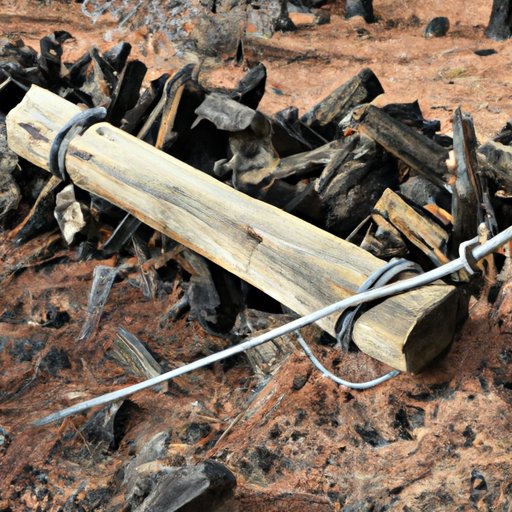
Introduction
Survival is an essential life skill that can mean the difference between life and death in extreme circumstances. Whether you find yourself lost in the wilderness, facing a natural disaster, coping with financial crisis, or dealing with loss and grief, knowing how to survive is crucial for your wellbeing. In this article, we’ll explore various scenarios and provide you with tips and strategies for survival.
How to survive in the wilderness
If you ever find yourself in the wilderness, the first thing you need to think about is finding food, water, and shelter. Here are some tips for finding these essentials:
Finding food
- Foraging for wild edibles
- Hunting for small game or fish
- Fishing in streams and lakes
Finding water
- Collecting rainwater in a container or tarp
- Finding natural water sources like streams or lakes
- Purifying water with iodine tablets or boiling
Building a shelter
Use natural materials like branches, leaves, and vines to build a makeshift shelter. Look for a dry, level area with natural protection from wind and rain.
Surviving a natural disaster
Natural disasters can strike unexpectedly, which is why it’s important to have a plan in place. Here are some specific steps you can take during common natural disasters:
Hurricanes
- Evacuate if possible
- Stay indoors and away from windows
- Listen to local news for updates
Earthquakes
- Duck, cover, and hold on
- Stay away from windows and heavy furniture
- Stay indoors until shaking stops
Wildfires
- Evacuate if directed to do so
- Cover your nose and mouth with a cloth
- Listen to local news for updates
Having an emergency plan
Make sure you have a plan in place for emergencies. This plan should include an emergency kit, a meeting point for family if separated, and a way to contact each other if phones are not working.
Mental toughness
Mental toughness is the ability to stay strong and resilient in the face of adversity. Here are some ways to build your mental toughness:
Positive self-talk
Replace negative thoughts with positive affirmations. This can help you stay focused and optimistic in difficult situations.
Visualization
Visualize yourself succeeding or overcoming challenges. This can help you develop a sense of confidence and determination.
Surviving a financial crisis
Financial crises can be overwhelming, but there are ways to stay afloat:
Budgeting
Create a budget and prioritize your expenses. Look for ways to save money where you can.
Earning more income
Consider taking on side jobs or selling items you no longer need. Investing in the stock market or real estate can also provide long-term financial stability.
Emergency preparedness
Being prepared for emergencies can mean the difference between life and death. Here are some essentials to have on hand:
Emergency kit
Include items like a first aid kit, non-perishable food, water, flashlight, extra batteries, and a multi-tool.
Coping with loss and grief
Grief is a natural response to loss, but there are ways to cope:
Seeking support
Reach out to friends, family, or a support group. Talking about your experience can help you heal.
Practicing self-care
Take care of yourself physically and emotionally. Exercise, eat well, and get enough sleep.
Finding meaning
Find ways to meaningfully remember your loved one or give back to others in their memory.
Seeking professional help
If you are struggling with grief, don’t hesitate to seek professional help from a therapist or grief counselor.
Conclusion
Surviving any situation requires preparation, mental toughness, and a willingness to adapt. Whether you’re lost in the wilderness or coping with grief, these tips and strategies can help you overcome adversity. Remember to stay positive, stay focused, and don’t give up. When it comes to survival, anything is possible if you have the right mindset.
For further reading on survival and emergency preparedness, check out resources from the Centers for Disease Control and Prevention, the American Red Cross, and National Geographic.




